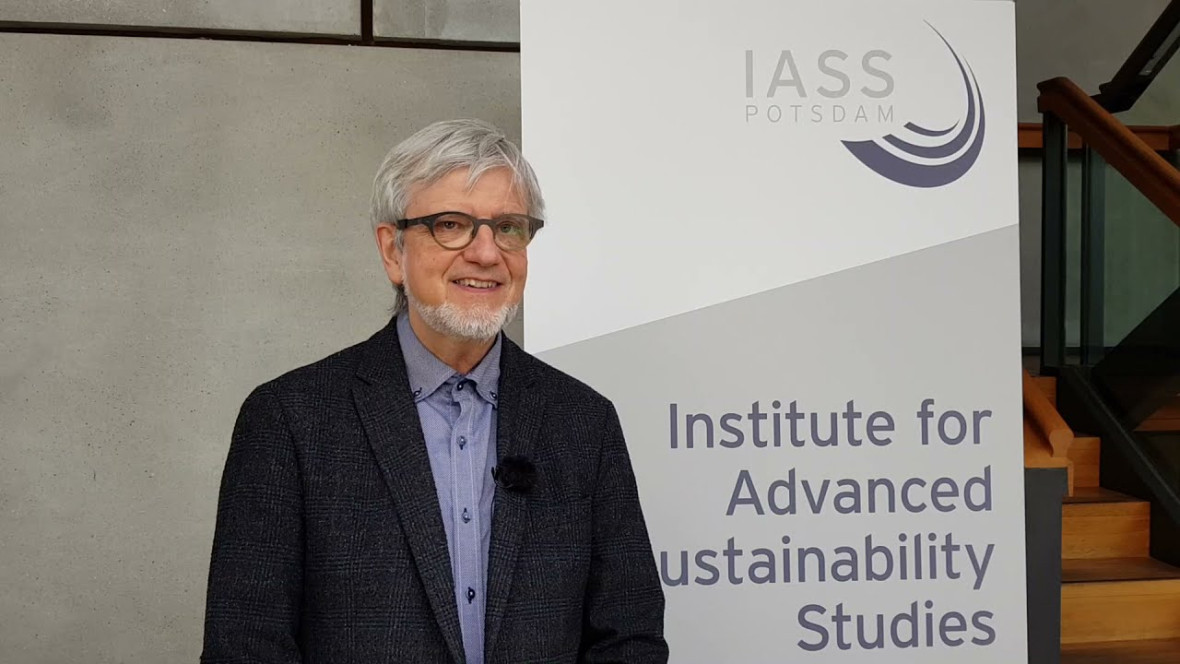IASS Expert to Advise Citizens’ Assembly on Climate
29.04.2021
160 randomly selected citizens, twelve meetings, 25 scientists from the climate and social sciences: Germany’s first Citizens’ Assembly on Climate has commenced its work under the patronage of former German President Horst Köhler. This “Council of 160” will develop recommendations for Germany’s climate policy with the support of a board of experts led by Professor Ortwin Renn from the Institute for Advanced Sustainability Studies (IASS) in Potsdam. In this interview, Prof. Renn explains what the Citizens’ Assembly is setting out to achieve.

Climate policy is a hotly debated topic in parliaments. What can a citizens’ assembly achieve that members of parliament can’t?
Prof. Ortwin Renn: Citizens’ assemblies represent a broad range of groups from across society, each with its own interests, values, and preferences. They also represent the people whose lives and futures will be shaped by emerging policies and legislation. And what could be more natural than to discuss the consequences of different policy options with the citizens concerned and draw on our current understanding to develop policy recommendations that focus on the common good? This is not about citizens usurping parliament’s decision-making powers; citizens’ assemblies are a way of broadening the range of views that parliamentarians consider when forming their judgements and making their decisions.
Can 160 randomly selected citizens – not experts – really come up with effective and viable solutions?
O. R.: Citizens’ assemblies are not intended to supersede factual expertise or the political judgement of parliamentarians. Rather, the aim is to produce value-based assessments that are informed by the lived-experiences and life-worlds of the citizens affected by political decisions. It is quite usual for politicians to commission expert opinions from the scientific community, for example, in the run-up to important decisions. Similarly, it should be a matter of course for politicians to also consider such value-based assessments in order to incorporate into their decision-making the views and perspectives of citizens on a topic that will ultimately affect them.
What will happen with the findings and proposals of the Citizens’ Assembly on Climate?
O. R.: The recommendations of the Citizens’ Assembly on Climate are primarily a form of policy advice, but they will also benefit actors across the business sector and civil society. After all, the decisions we need to make in order to effectively protect the climate entail massive interventions and changes in terms of production processes, energy and food systems, and individual lifestyles. This makes it vital that policymakers, economic actors, and civil society understand and heed the well-informed judgements of the citizens who will be affected by these measures so that they can make wise and effective decisions with the broad support of society.
Background: The Citizens’ Assembly on Climate
Between April 26 and June 23, 2021, the 160 citizens will consider how the climate goals of the Paris Agreement can be reached ecologically (sustainable for the environment), economically (good for our economy) and socially (fair for all). A scientific advisory board, including atmospheric scientist and IASS Scientific Director Mark Lawrence, will answer participants’ questions about climate protection and explain the current state of research across a wide range of disciplines. Special attention will be given to the topics of transportation, buildings and heating, energy generation and food.
This inaugural Citizens’ Assembly on Climate is based on models pioneered in France and Great Britain. Its aim is to ensure that Germany’s future climate policies are fair and enjoy broad support. The project was initiated by an alliance of civil society organisations in December 2020. The results of the Assembly will be voted on at the end of June and disseminated to all the political parties in the German Bundestag in autumn so that they can be taken into account in the next legislative period.
Find out more about the Climate Assembly: buergerrat-klima.de
Video (in German):
Media
Der Bürgerrat Klima

